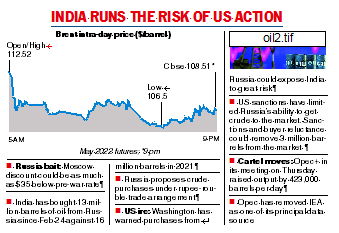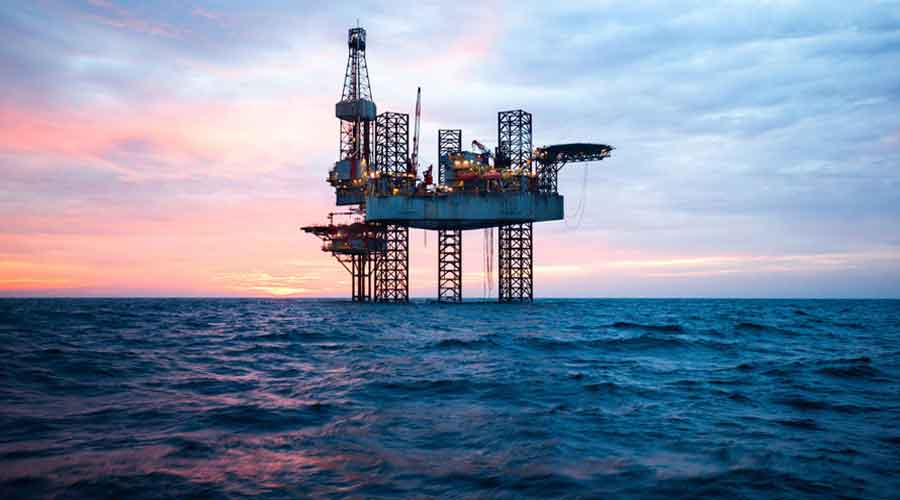Russia is offering 15 million barrels of cheap crude oil from the Urals to India for this year. Discussions on the contract and payment are being held with the possibility of a deal being signed during Russian foreign minister Sergei Lavrov’s two-day visit to India which begins Thursday.
A Bloomberg report said sanctions-hit Russia is offering its flagship Urals grade to India at “discounts of as much as $35 a barrel on prices before the war to lure India to lift more shipments”.
With Brent crude ruling at $108 at present and at a tad below $100 on February 24 when Russia invaded Ukraine, the offer represents a massive discount as Moscow scrounges for buyers in the aftermath of the sanctions by the West, led by the US.
Refiners in India, the world’s third biggest oil importer and consumer, have been snapping up Russian oil through spot tenders since the war broke out on February 24, taking advantage of deep discounts as other buyers back away.
India has purchased at least 13 million barrels of Russian oil since February 24, compared with nearly 16 million barrels in all of 2021.
US warning
A significant increase in Russian oil imports by India could expose New Delhi to a “great risk”, a senior US administration official said.

While the current US sanctions against Russia do not prevent other countries from buying Russian oil, the warning raises expectations that Washington will attempt to restrict other countries’ purchases to normal levels.
Opec hardens stand
Opec and allies, including Russia, agreed on Thursday to another modest monthly oil output boost, resisting pressure to pump more, and ditched the Paris-based International Energy Agency as a data source in a sign of a hardening standoff with the West.
The group has resisted repeated calls by the US and the IEA to pump more crude to cool prices that climbed close to an all-time high after Washington and Brussels imposed sanctions on Moscow .
Opec+, which consists of Opec and other producers including Russia, will raise output by about 432,000 barrels per day in May.
(With inputs from Reuters)










